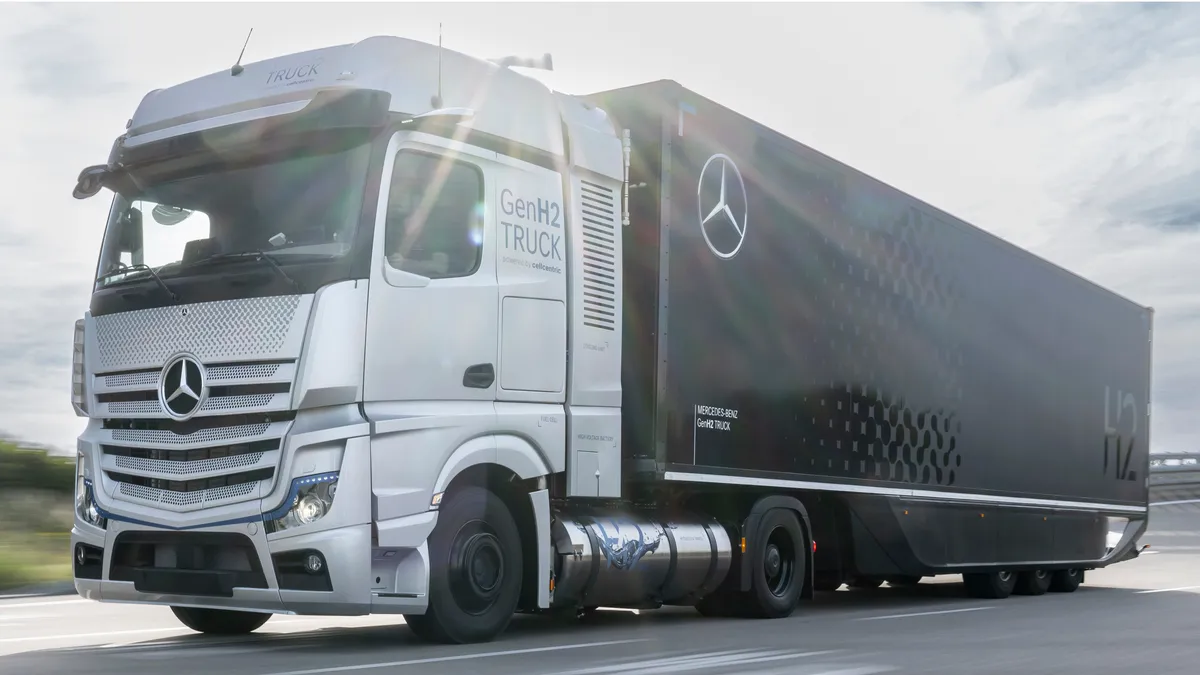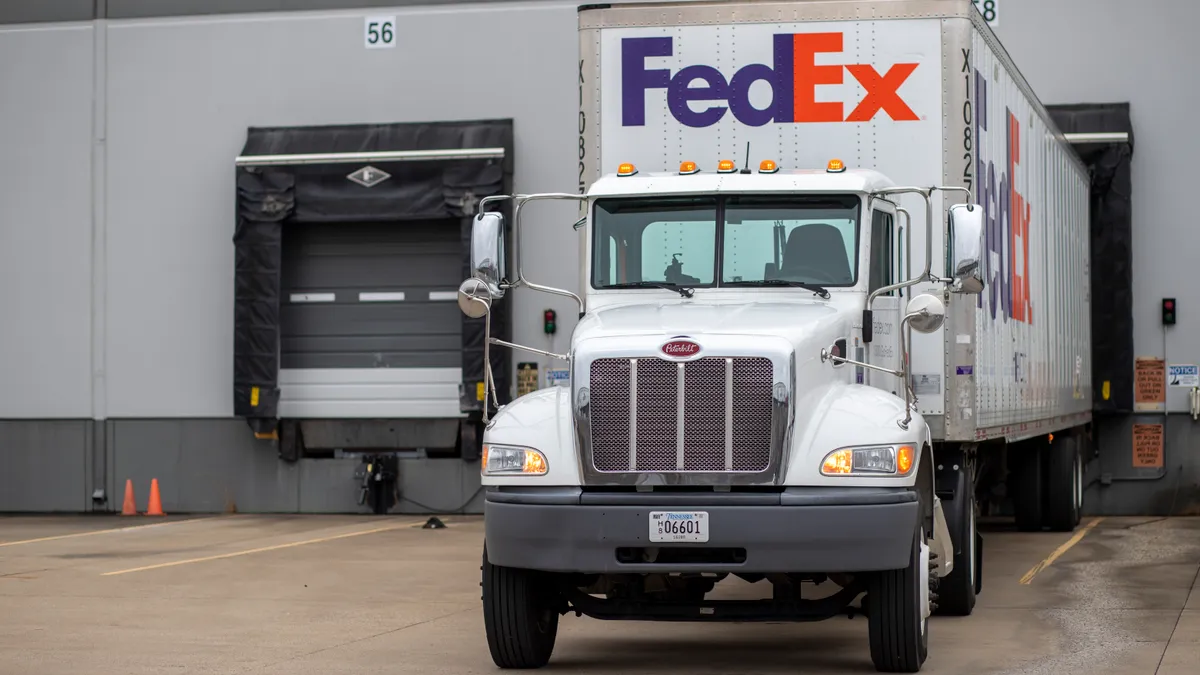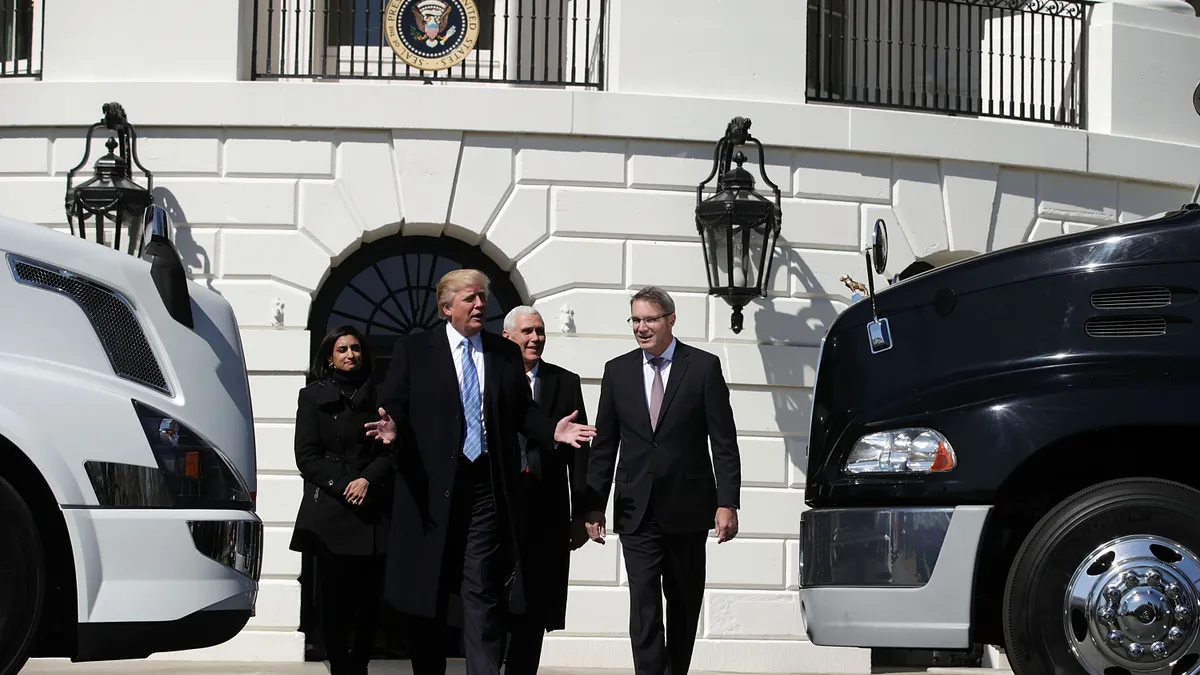Daimler Truck North America, Navistar and Volvo Group North America have formed an industry group to advocate for an accelerated buildout of nationwide infrastructure for medium- and heavy-duty electric trucks.
The OEMs, which collectively account for about 70% of all U.S. medium- and heavy-duty truck sales, say the group will push to overcome “many barriers delaying access to [zero-emission vehicle] infrastructure.” The Powering America’s Commercial Transportation (PACT) coalition, as it’s called, seeks to “enhanc[e] national climate policies to address the infrastructure needs” of zero-emission trucks.
“Each original equipment manufacturer has battery-electric vehicles in the marketplace, but access to charging infrastructure is an increasingly significant bottleneck to the widespread adoption of these technologies,” the group said in its Jan. 30 announcement.
Aside from the OEMs, the group’s founders are stakeholders in several industries: EV charger retailers ABB E-mobility, Greenlane and Voltera; construction engineering firm Burns & McDonnell; Canadian electric utility BC Hydro; and industrial real estate firm Prologis.
The coalition said it would be “the unified voice” for medium- and heavy-duty zero-emissions vehicle infrastructure — and would not advocate for specific vehicle, power generation or utility distribution technologies.
It noted that transportation electrification thus far has largely focused on the needs of light-duty passenger vehicles.
The group cited a projection by the International Council on Clean Transportation that nearly 700,000 chargers will be needed nationwide to accommodate the 1 million Class 4-8 medium- and heavy-duty zero-emission trucks expected to be deployed by 2030.
That would consume 140,000 megawatts of electricity every day, equivalent to the monthly energy needs of over 100 million American homes, according to the group.
The stakeholders’ concerns about infrastructure costs are well-founded, according to the American Transportation Research Institute. Installing charging equipment at truck parking stops across the U.S. could cost upwards of $35 billion, based on a per-unit cost of $112,000, the American Trucking Associations nonprofit said in a study last year.
In a key first step to addressing the issue, the Biden administration has kicked off an analysis of the cost and operational barriers to charging medium- and heavy-duty electric trucks, an official from the Joint Office of Energy and Transportation said at ATA’s 2023 Management Conference and Exhibition.
But the transition to zero-emission vehicles is stalling without deployment of the necessary charging infrastructure, Daimler President and CEO John O’Leary warned in the announcement.
"Decarbonizing the commercial transportation sector – the fleets that keep America moving – is critical to meeting our nation’s climate goals,” O’Leary said. “Through PACT, we aim to accelerate this infrastructure buildout so that fleets can adopt ZEVs at scale and we can all benefit from impactful emissions reductions as quickly as possible."
Navistar President and CEO Mathias Carlbaum said in the announcement that truck buyers need fast, reliable, affordable and convenient power to effectively deploy zero-emission fleets at scale.
“To enable their success, we must work collaboratively across sectors to deliver an infrastructure that provides access to seamless electricity and meets the commercial transportation industry’s unique needs,” Carlbaum said. “PACT provides a concerted forum dedicated to making this vision a reality.”
Stephen Roy, Volvo Group North America chairman and president of Mack Trucks, called the scale of infrastructure required for medium- and heavy-duty EV adoption “unprecedented.”
“Understanding and coordination across the different stakeholders is imperative to deploy chargers quickly and cost-effectively,” Roy said. “PACT will promote best practices to streamline this complex transition while minimizing impacts on fleets, utilities, and the economy.”





















